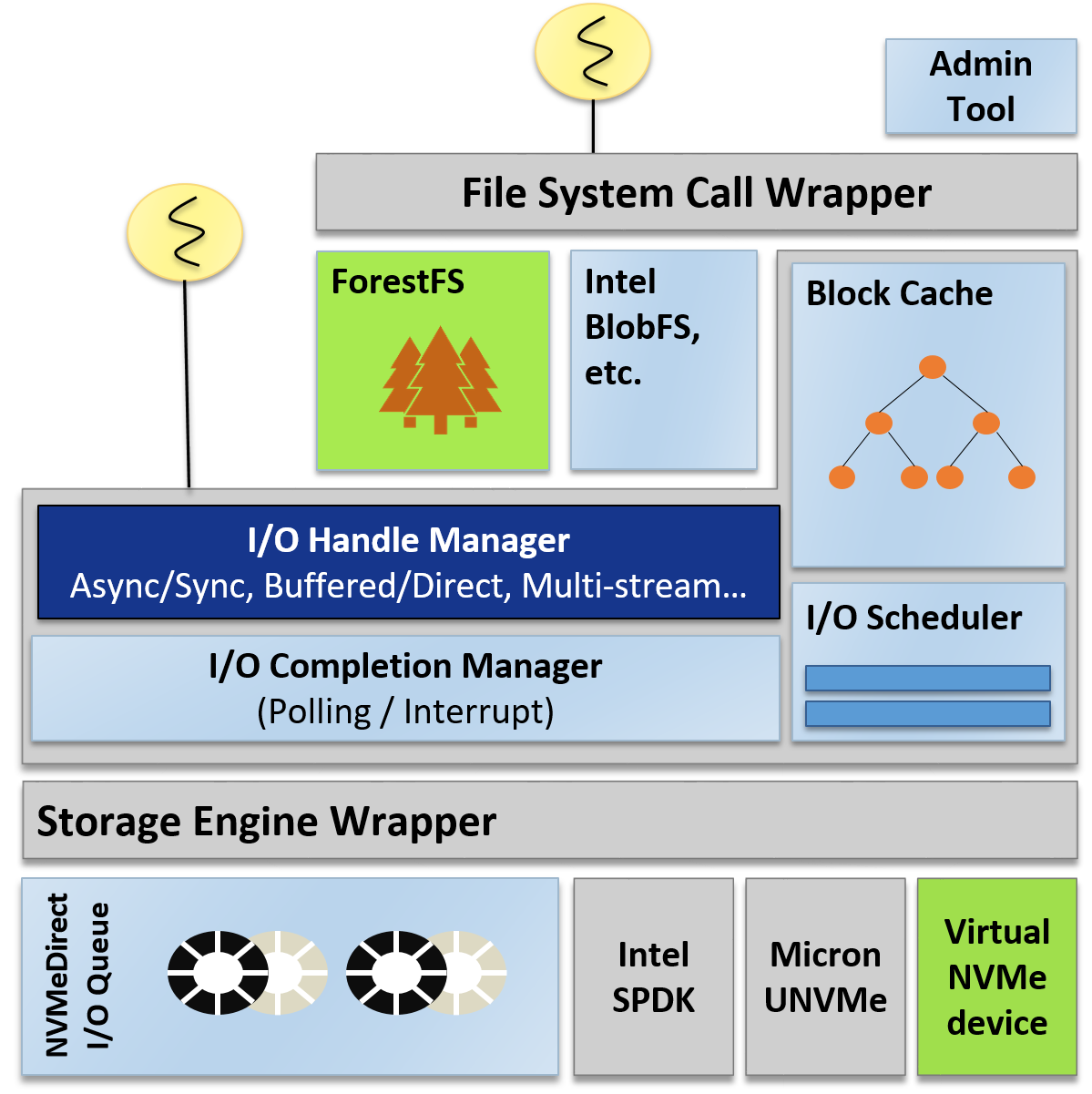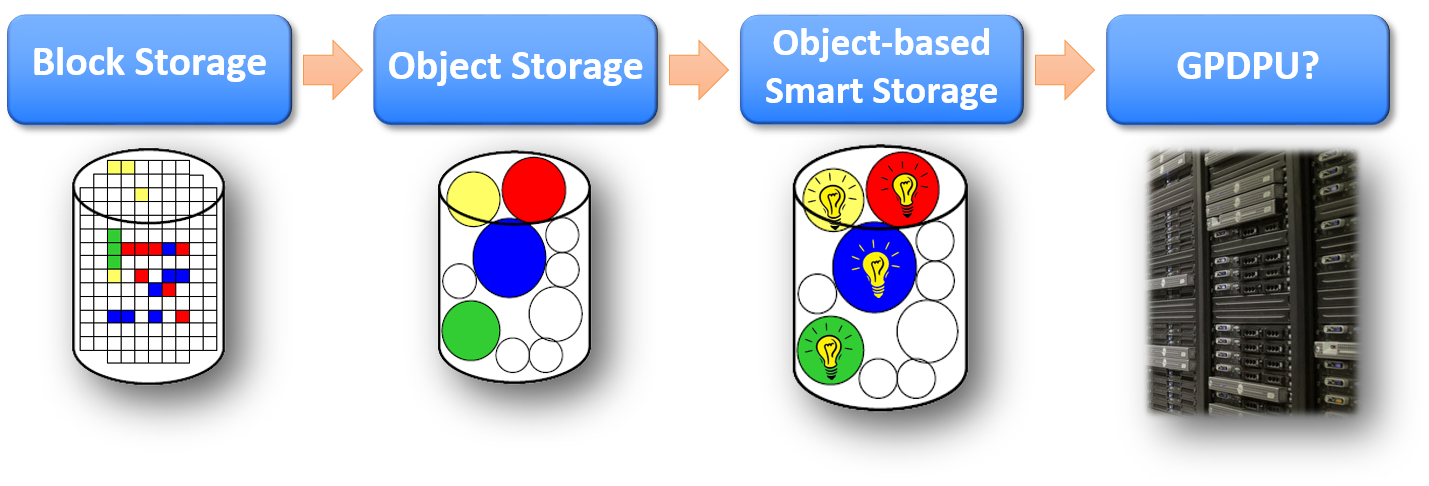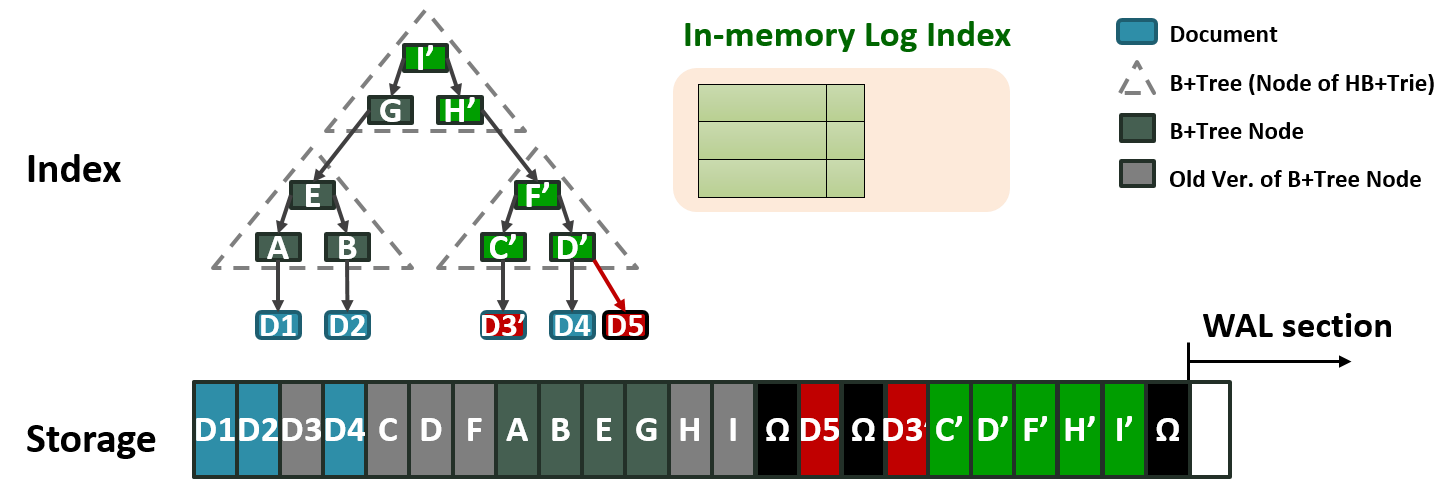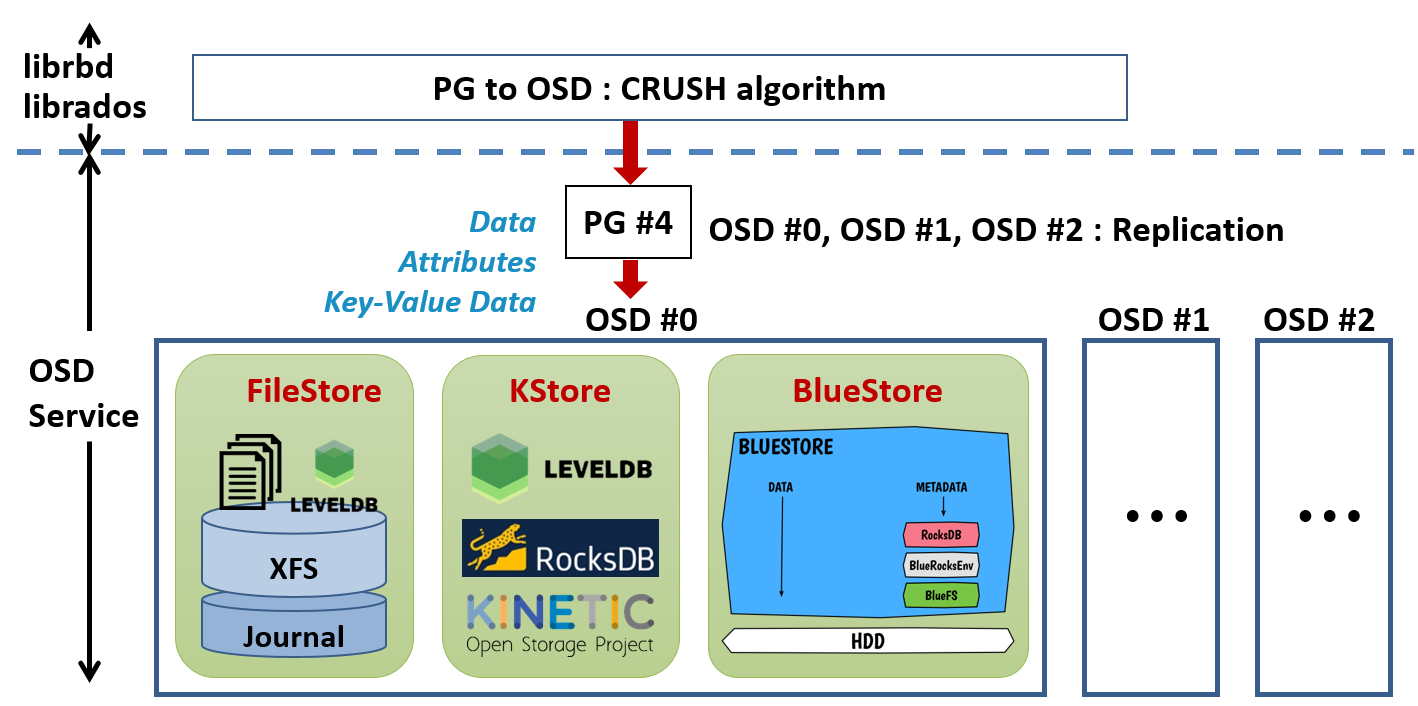Solid State Drives (SSDs)
NVMeVirt
NVMeVirt is a virtual NVMe SSD emulator implemented as a Linux kernel module. NVMeVirt consists of PCIe device emulator, NVMe controller emulator, and various storage backends including but not limited to NVM (Non-Volatile Memory) SSD, Conventional SSD, ZNS (Zoned NameSpace) SSD, and KV (Key-Value) SSD. NVMeVirt opens up a new opportunity to design highly intelligent storage devices over the NVMe interface.
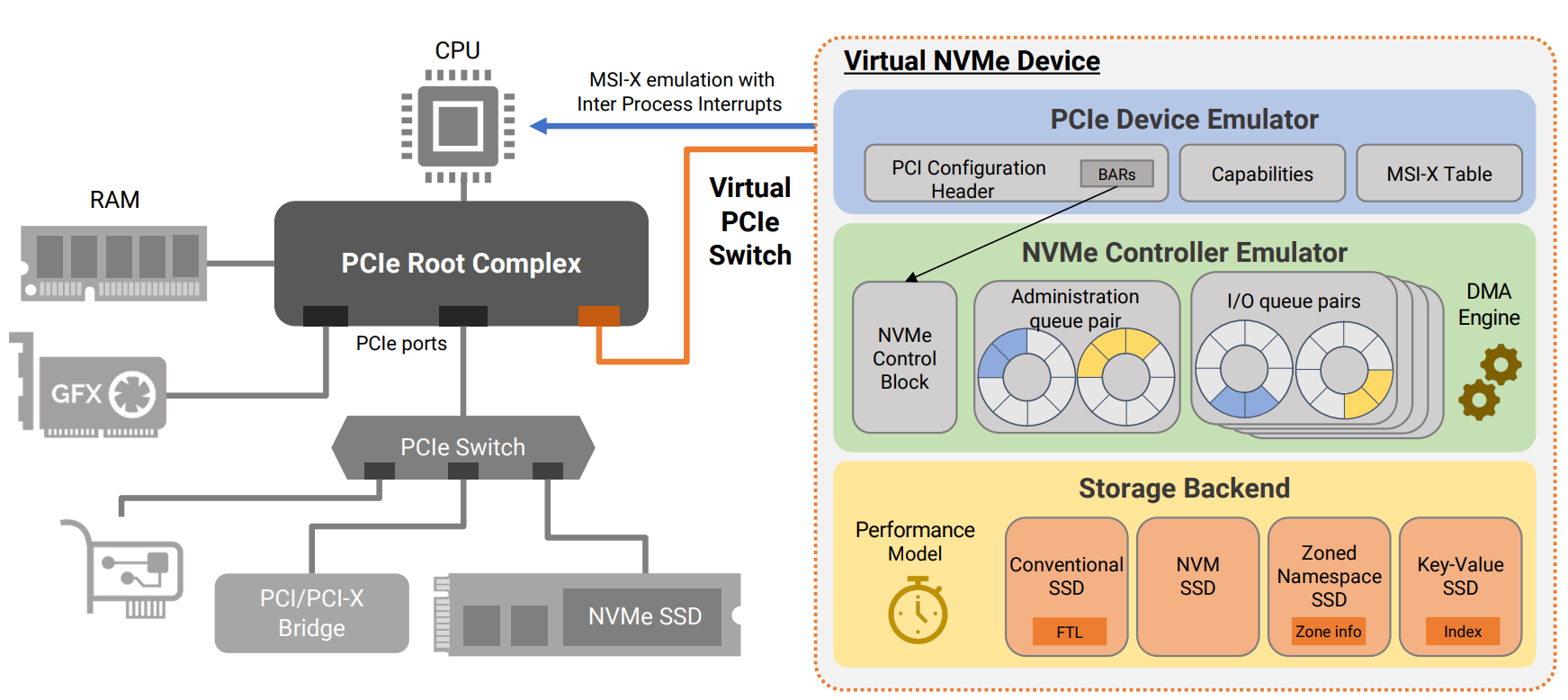
Flash Translation Layers (FTLs)
The management firmware inside of the SSD is usually called the Flash Translation Layer (FTL). The FTL plays an important role in determining the performance and reliability of the SSD. We are working on following research projects related to FTLs.
vStream
The goal of vStream is to provide a large number of virtual streams to application developers that are independent of the physical streams available in the recent Multi-streamed SSDs.
The OpenSSD Project
We are actively participating in the OpenSSD Project, which is an initiative to promote research and education on the recent SSD technology by providing easy access to OpenSSD platforms. We are also interested in building ecosystem around the OpenChannel SSD, based on the latest Cosmos+ OpenSSD platform.
